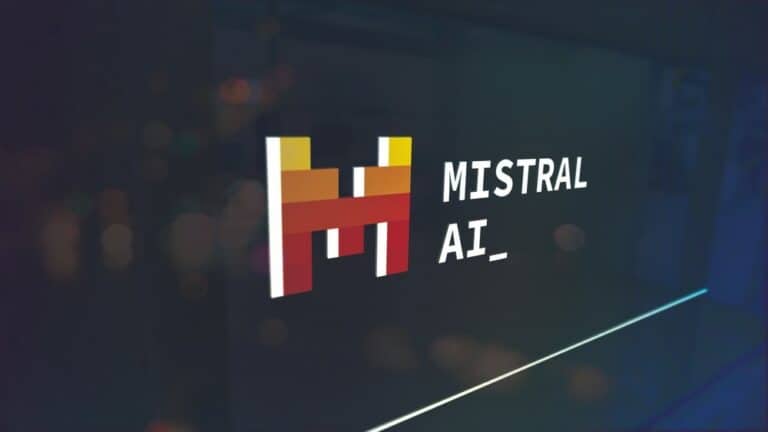A French AI start-up signed partnerships with AWS and Microsoft this week. Will Europe have its own OpenAI? Primarily, Microsoft’s interest in this start-up is important to answer that question. After all, this company before worked exclusively with OpenAI.
Mistral AI was already praised by Europe in the context of the AI Act as a promising European AI start-up. Nothing promising seemed to happen in the start-up for a long time, until the company was able to close two deals with international IT companies this week. To make it even clearer that Mistral AI has not been inactive in recent months, it has also released a new large language model this week.
AWS and Microsoft
The collaborations Mistral AI managed to close this week are not the least. AWS says it will make two of the company’s LLMs available in Amazon Bedrock. Microsoft will make Mistral AI’s LLMs available in its Azure cloud.
Microsoft gets the scoop on making Mistral Large available first. Mistral Large is the newest LLM from Mistral AI. With the capabilities of this model, the start-up is directly competing with top models such as GPT-4 and Claude 2. “Mistral Large achieves strong results on commonly used benchmarks, giving it the second place among all models in the world that are generally available through an API (besides GPT-4),” the company writes in the announcement.
Mistral AI’s LLMs are praised by AWS for a good cost-to-quality ratio. That makes the models appealing to new audiences who can spend fewer resources on AI. This does, however, not mean that the LLMs are of inferior quality, as AWS cites that the models offer very fast interfacing speed.
Different from OpenAI, and that’s an advantage
Where the French start-up’s models even have an edge over OpenAI’s GPT models is in their open-source nature. That makes for more transparency towards customers. Furthermore, it gives more options in terms of customizability. But to customize the models the necessary knowledge in a company is required.
At the same time, Mistral AI is exploring options for issuing closed LLMs. This is the new approach for Mistral Large, for example. That includes a paid API, which costs 7.30 euros for one million tokens of input and 22 euros for the same amount of output.
The European character of the company is characterizing the supported languages for the models. With the big tech companies, it is often waiting for availability to be extended to more languages than just English. Such is the case, for example, with the availability of Google’s Gemini Ultra. The LLM Mixtral 8x7B coming soon to Amazon Bedrock will offer support for French, English, German, Spanish and Italian from the moment it launches. These languages are also the lead model for the launch of Mistral Large.
Second AI partner for Microsoft
The strengths have already managed to convince Microsoft to invest in this start-up. The company is investing fifteen million euros. Thus, the investment has a much lower value than Microsoft’s last investment in OpenAI, which involved 11.9 billion euros. Mistral AI’s estimated value of 2 billion euros is also already a lot lower than the amount Microsoft invested in OpenAI.
That does not make Microsoft’s investment in Mistral AI any less remarkable. For this, Microsoft worked exclusively with OpenAI, whose LLMs it uses in its AI assistant Copilot. Earlier signs of reducing its reliance on OpenAI came when Microsoft formed an AI team itself to develop smaller models. The company states it wants to increase its footprint in the AI industry with this new investment. It seems this mainly resolves around getting a firmer grip on the European AI market.
No heart for Europe?
Microsoft’s investment does attract renewed attention from European authorities. Microsoft’s investment would be converted into shares in the company’s next round of funding, Reuters knows. The investigation is necessary because Mistral AI is thought to have tricked Europe earlier to make the best out of this deal.
The deal is being received as a direct attack on the AI Act. The company was previously concerned about the Act’s potential impact on the ability of European AI start-ups to grow and, therefore, asked for exemptions to some regulations. The deal with Microsoft now leaves lawmakers questioning the true intentions of voicing these concerns. “The law almost collapsed under the guise of no rules for ‘European champions,’ and now look. The European regulators have been played with,” Kim van Sparrentak, a member of the European Parliament and involved in setting up the AI Act, explained.
Also read: AI Act: OpenAI and Google may not violate copyrights
So Mistral AI certainly seems to be living up to the title of promising AI start-up. Collaborations with AWS and Microsoft and, in particular, Microsoft’s investment in the company are proof of that. Despite that success, official members of European bodies have doubts. Because of Mistral AI’s previous lobbying to get out from under AI Act rules, they feel they have been played. So, Europe may have a strong competitor for OpenAI, but Europe itself does not seem too happy about it.
